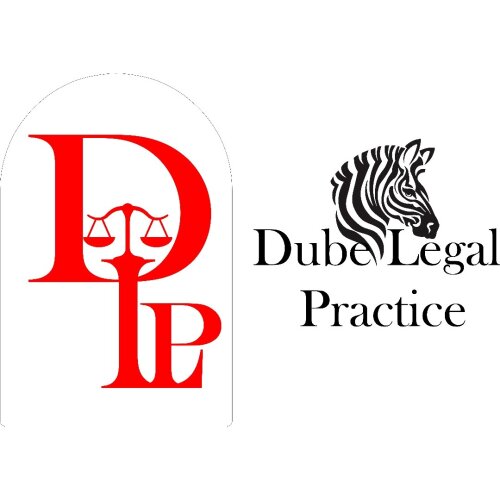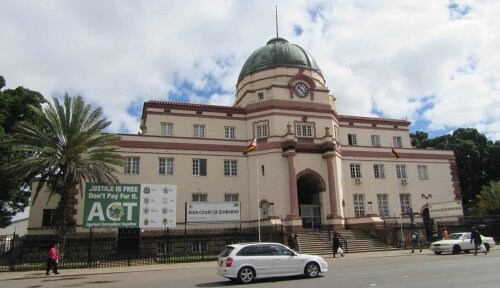Best Education Law Lawyers in Bulawayo
Share your needs with us, get contacted by law firms.
Free. Takes 2 min.
List of the best lawyers in Bulawayo, Zimbabwe
About Education Law in Bulawayo, Zimbabwe
Education law in Bulawayo, Zimbabwe encompasses the statutes, regulations, policies, and legal principles that govern the education system. This includes matters related to public and private schools, higher education institutions, student rights, teacher conduct, school administration, and government oversight. The legal framework aims to ensure that every child receives access to quality education as provided in Zimbabwe's Constitution, the Education Act, and related local policies. Education law also considers issues like school discipline, discrimination, and funding, ensuring the rights of students, teachers, and educational institutions are respected within Bulawayo and throughout Zimbabwe.
Why You May Need a Lawyer
Navigating education law can be complex for students, parents, teachers, or school administrators. Common situations where legal assistance may be necessary include:
- Disciplinary actions against students or educators, such as expulsions, suspensions, or dismissals.
- Cases involving discrimination or unequal treatment based on gender, disability, religion, or other protected grounds.
- Appeals against examination results or academic decisions made by schools or higher education institutions.
- Disputes over school fees, admissions policies, or the allocation of government funding.
- Addressing grievances related to bullying, harassment, or unsafe school environments.
- Understanding and enforcing the rights of children with special educational needs or disabilities.
- Challenging invalid school regulations, improper procedures, or policy violations by educational authorities.
A qualified lawyer can offer expert advice, represent your interests, help file complaints, and guide you through various legal processes specific to education in Bulawayo.
Local Laws Overview
In Bulawayo, the main legal instruments governing education include the Zimbabwe Constitution, the Education Act (Chapter 25:04), and statutory instruments issued by the Ministry of Primary and Secondary Education and the Ministry of Higher and Tertiary Education. Key aspects include:
- Every child has the right to basic, state-funded education, as stated in the Zimbabwe Constitution.
- The Education Act outlines the administration of schools, appointment of teachers, and the curriculum framework.
- Provisions safeguarding students against unfair treatment, discrimination, and ensuring inclusive education are incorporated in both the Constitution and the Education Act.
- Policies stipulate the process for school admissions, management of school fees, and the role of parents and school development committees in decision-making.
- Local by-laws may apply to public health, sanitation, and safety standards in schools within Bulawayo.
- Appeals procedures exist for decisions made by school heads or boards that may adversely affect students or staff.
These laws collectively ensure the accountability of educational institutions and the protection of rights within the learning environment.
Frequently Asked Questions
What are my child’s rights to education in Bulawayo?
Every child has the right to free and compulsory basic education according to Zimbabwe’s Constitution and the Education Act. This includes primary and secondary education in public schools.
Can schools in Bulawayo refuse admission based on religion, gender, or disability?
No, discrimination on the grounds of religion, gender, disability, or any other protected status is prohibited. Schools must follow national policies promoting equal access to education.
What can I do if my child faces unfair disciplinary action at school?
You can request an explanation and a hearing from the school. If unresolved, you can appeal the decision to the district education officer or seek legal assistance for further recourse.
Who regulates the operation of private schools in Bulawayo?
Private schools are regulated by the Ministry of Primary and Secondary Education, and must comply with national education standards and local requirements.
Is corporal punishment allowed in Bulawayo schools?
Corporal punishment has been declared unconstitutional in Zimbabwe, and its use in schools is prohibited.
What should I do if my child with a disability is denied access to school?
You may consult with the school or education authorities to find a resolution. Zimbabwean law supports inclusive education, and denial of access can be challenged through local education offices or legal channels.
How are school fees determined in Bulawayo public schools?
School fees are set by the School Development Committees in consultation with parents and are subject to approval by the Ministry of Primary and Secondary Education.
Can I challenge the results of a national examination?
Yes, there are procedures for requesting a remark or review of examination results through the Zimbabwe School Examinations Council (ZIMSEC).
What legal remedies exist for cases of bullying in schools?
Bullying should be reported to school authorities for immediate action. In severe cases, police intervention or legal recourse through the courts may be required.
How can teachers address wrongful termination or unfair labor practices?
Teachers may file grievances with the School or Ministry, and if unresolved, seek representation through teachers’ unions or approach the Labour Court for adjudication.
Additional Resources
If you need further assistance or information regarding education law matters in Bulawayo, consider contacting the following bodies and organizations:
- The Ministry of Primary and Secondary Education - for policy guidance and oversight.
- Bulawayo Provincial Education Office - for local education administration queries.
- The Zimbabwe School Examinations Council (ZIMSEC) - for exam-related matters.
- Zimbabwe Lawyers for Human Rights - for legal advice on educational rights and discrimination cases.
- Childline Zimbabwe - for child protection and reporting abuse in schools.
- Students’ Unions and Teachers’ Unions - for advocacy and support in employment or academic disputes.
These resources provide practical information and may help you access the right support when facing legal issues in education.
Next Steps
If you require legal help regarding an education law issue in Bulawayo, follow these steps:
- Gather all relevant documents and facts related to your case, including written communications and school policies.
- Make a formal inquiry or complaint with the school or relevant education authority where appropriate.
- If the issue is not resolved through informal channels, seek an appointment with a legal practitioner who specializes in education law.
- Consult local legal aid organizations or advocacy groups if you are unable to afford private counsel.
- Maintain clear records of all interactions and responses received during the complaint process.
Taking swift and informed action can often help secure a timely and favorable resolution to education-related legal matters in Bulawayo.
Lawzana helps you find the best lawyers and law firms in Bulawayo through a curated and pre-screened list of qualified legal professionals. Our platform offers rankings and detailed profiles of attorneys and law firms, allowing you to compare based on practice areas, including Education Law, experience, and client feedback.
Each profile includes a description of the firm's areas of practice, client reviews, team members and partners, year of establishment, spoken languages, office locations, contact information, social media presence, and any published articles or resources. Most firms on our platform speak English and are experienced in both local and international legal matters.
Get a quote from top-rated law firms in Bulawayo, Zimbabwe — quickly, securely, and without unnecessary hassle.
Disclaimer:
The information provided on this page is for general informational purposes only and does not constitute legal advice. While we strive to ensure the accuracy and relevance of the content, legal information may change over time, and interpretations of the law can vary. You should always consult with a qualified legal professional for advice specific to your situation.
We disclaim all liability for actions taken or not taken based on the content of this page. If you believe any information is incorrect or outdated, please contact us, and we will review and update it where appropriate.










